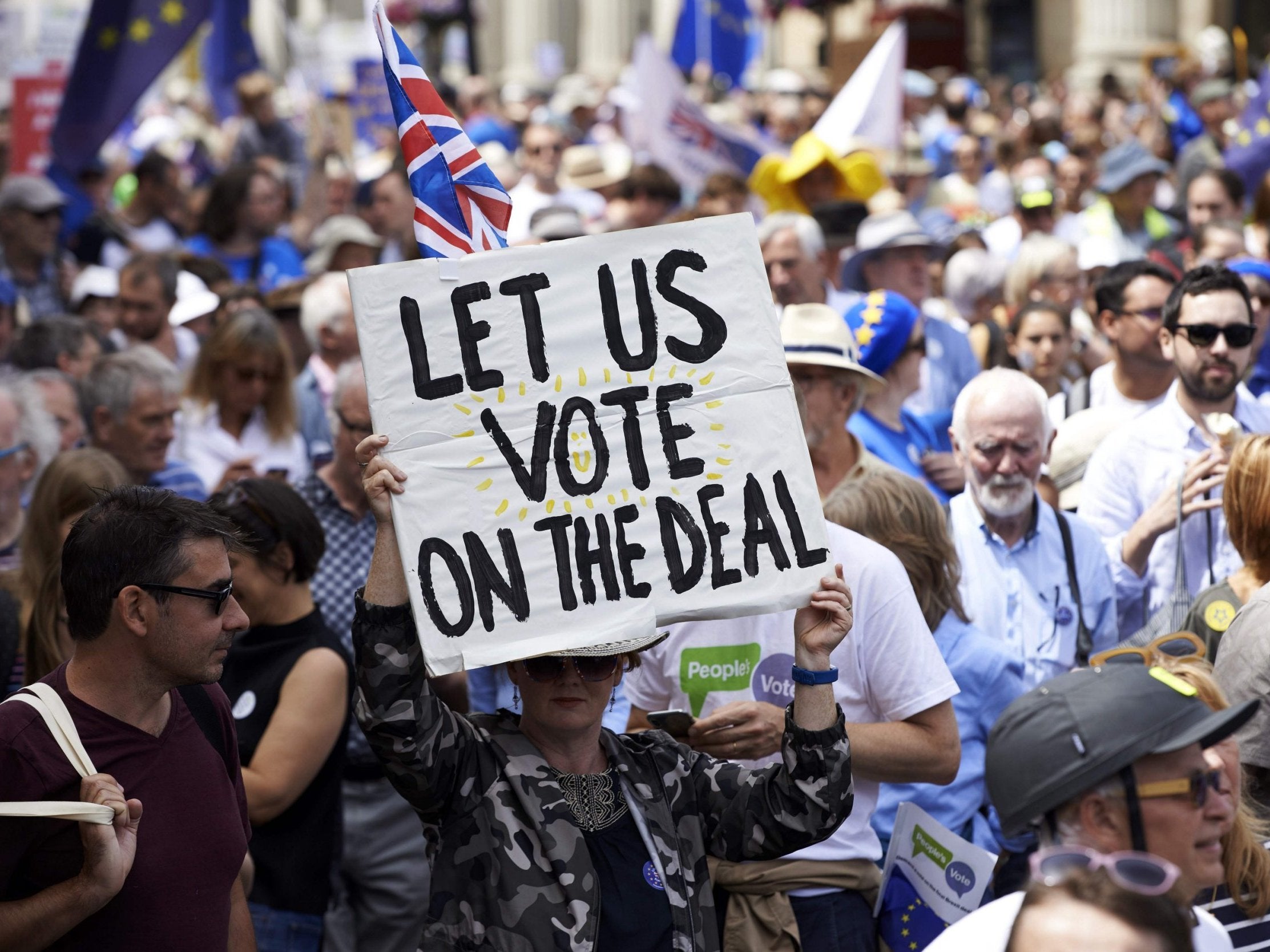How would a Final Say referendum happen?
Analysis: As Labour members overwhelmingly back another referendum, chief political commentator John Rentoul looks at the path to a public vote on Brexit


Three quarters of Labour Party members want a new referendum on Brexit, according to a YouGov survey published on Wednesday. And the betting markets think there is a 40 per cent chance of it happening. But how could it come about?
The first problem is time. There isn’t time to hold a referendum on a normal timetable, which would take at least six months. Of course, Greece held a referendum on the 2015 bailout in just eight days, but in Britain simply getting the legislation through a hung parliament would be impossible before exit day, 29 March.
Not only would a decision have to be made to hold another referendum, therefore, but also to postpone the UK’s departure from the EU. That raises more problems. The UK government could ask for an extension to the two-year notice period set out in Article 50 of the Treaty on European Union. That would need the unanimous agreement of the other 27 members. They have all said they would welcome the UK having the chance to change its mind about leaving, but it does also mean that any one of them could block an extension – or set conditions, such as Spain on Gibraltar or France on fish.
If such an obstacle arose, the UK would have another way to gain more time, by cancelling its notice to leave altogether. The European Court of Justice last month confirmed that we have a unilateral right to do so, but that does mean that, if the people voted again to leave, the Article 50 procedure would have to be started again from the beginning.
How, then, could a double decision – to postpone Brexit in order to hold a referendum – happen? The first attempt will probably be on the day of the big vote on the Brexit deal, which is expected to be on 14 or 15 January. Sir Vince Cable, leader of the Liberal Democrats, is likely to table an amendment calling for a new referendum, which will be voted on first. It is bound to be defeated, because Labour will not, at this stage, support it.
After the motion to approve the prime minister’s deal goes down to its predicted defeat, however, things could change. Once Labour has tried and presumably failed to force a general election, Jeremy Corbyn will have to decide the party’s next step. This is the significance of the YouGov survey of Labour members, carried out last month for the ESRC-funded Party Members Project run by Professor Tim Bale of Queen Mary University of London.
This found that 72 per cent of party members want a new referendum (18 per cent do not; 10 per cent don’t know), and that Corbyn’s rating among them has fallen from 80 per cent in March to 65 per cent now. Having said he would respect the will of Labour members, Corbyn would be under pressure to support a referendum. At the moment, Labour policy is simply that it is one of the “options remaining on the table” if a general election is not possible.
If the shadow cabinet backed the policy, it is possible that there would be a majority in the House of Commons in favour of a second referendum – although we haven’t even considered the awkward question of what the question on the ballot paper would be. If that can be overcome, it would still require a large number of Conservative MPs to back it, to offset the unknown number of Labour MPs who would vote against.
Constitutionally, Theresa May could ignore such a vote, but politically it would be unthinkable to defy the majority of the Commons – and, if she cannot win the vote for her deal, it must be suspected that she would rather go for postponement and a referendum than for a no-deal Brexit.
The chances of a new referendum depend, therefore, on Jeremy Corbyn and the precise numbers of anti-referendum rebel Labour MPs versus pro-referendum Tory MPs.
Got an unanswered question about Brexit? Send it to editor@independent.co.uk and we’ll do our best to supply an answer in our Brexit Explained series
Join our commenting forum
Join thought-provoking conversations, follow other Independent readers and see their replies
Comments